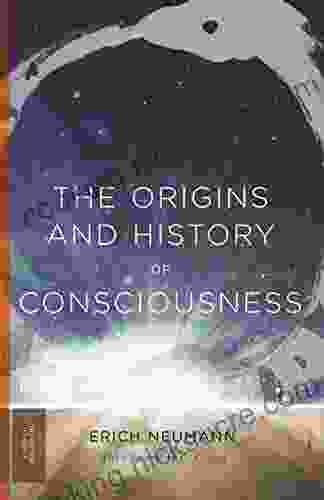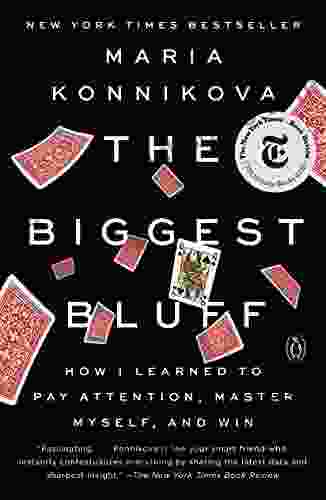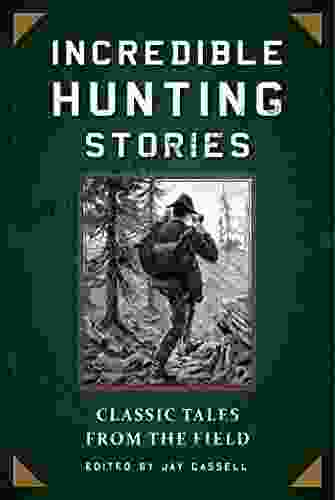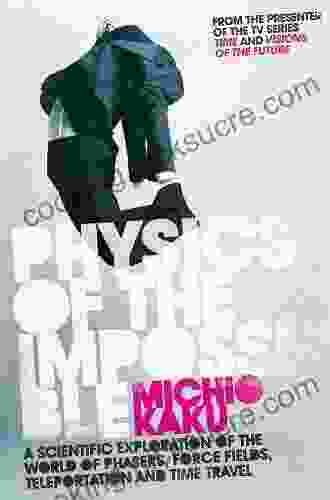The Origins and History of Consciousness: A Princeton Classic in Cognitive and Behavioral Neuroscience

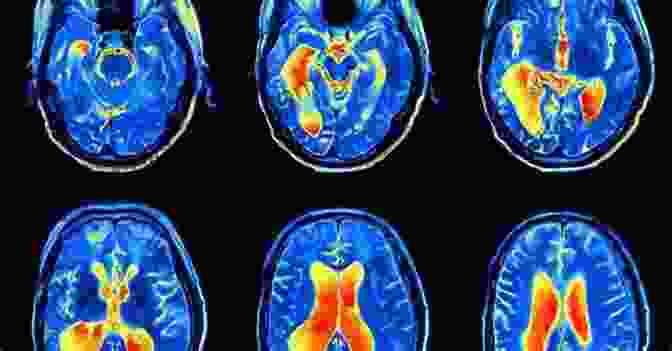
Consciousness is one of the most fascinating and enigmatic phenomena in the natural world. It is the ability to be aware of oneself and one's surroundings, to experience sensations, thoughts, and emotions, and to make choices and decisions. Consciousness is what makes us human, and it is what sets us apart from other animals.
4.8 out of 5
| Language | : | English |
| File size | : | 17796 KB |
| Text-to-Speech | : | Enabled |
| Screen Reader | : | Supported |
| Enhanced typesetting | : | Enabled |
| Word Wise | : | Enabled |
| Print length | : | 506 pages |
But where does consciousness come from? And how did it evolve? These are questions that have puzzled philosophers and scientists for centuries. In recent years, however, there has been a growing body of research that has shed new light on the origins and history of consciousness.
The Origins of Consciousness
The earliest evidence of consciousness dates back to around 500 million years ago, when the first animals with brains evolved. These animals were simple creatures, with only a few basic senses and a limited ability to learn and remember. But they were capable of experiencing consciousness, and they were the ancestors of all conscious beings.
Over time, the brains of animals grew more complex, and their ability to experience consciousness grew as well. The first animals to develop a sense of self were the reptiles, who evolved around 300 million years ago. Reptiles were capable of recognizing themselves in a mirror and of forming social bonds with other reptiles.
The next major step in the evolution of consciousness was the development of the mammalian brain, which occurred around 200 million years ago. Mammals have a much more complex brain than reptiles, and they are capable of a wider range of experiences. Mammals are also capable of empathy and compassion, and they have a strong sense of family and community.
The most recent development in the evolution of consciousness is the human brain, which evolved around 2 million years ago. The human brain is the most complex brain of all, and it is capable of a vast range of experiences. Humans are capable of language, reason, and creativity, and they have a unique ability to understand and manipulate their environment.
The History of Consciousness
The history of consciousness is closely tied to the history of human culture. As humans evolved, their ability to experience consciousness grew, and they began to develop new ways of expressing their thoughts and feelings. The first evidence of human consciousness dates back to around 30,000 years ago, when the first cave paintings were created. These paintings depict scenes of hunting, gathering, and social interaction, and they provide a glimpse into the minds of our early ancestors.
As human culture continued to develop, so did our understanding of consciousness. The ancient Greeks were the first to develop a philosophical theory of consciousness, and they believed that consciousness was a gift from the gods. The Romans adopted the Greek theory of consciousness, and they believed that consciousness was a part of the soul.
In the Middle Ages, the Christian Church adopted the Roman theory of consciousness, and it taught that consciousness was a gift from God. The Church also taught that consciousness was a separate entity from the body, and that it would survive after death.
In the Renaissance, the humanist movement challenged the traditional Christian view of consciousness. The humanists believed that consciousness was a natural phenomenon, and that it was not a gift from God. The humanists also believed that consciousness was not a separate entity from the body, and that it would not survive after death.
The Enlightenment was a period of great intellectual ferment, and it saw the development of new theories of consciousness. The philosopher John Locke believed that consciousness was a product of experience, and that it was not innate. The philosopher David Hume believed that consciousness was a bundle of sensations, and that it had no independent existence.
In the 19th century, the development of the scientific method led to a new wave of research on consciousness. Scientists began to study the brain, and they made important discoveries about the neural basis of consciousness. The psychologist William James believed that consciousness was a stream of thought, and that it was constantly changing. The philosopher William James believed that consciousness was a stream of thought, and that it was constantly changing.
In the 20th century, the development of computers led to a new wave of research on consciousness. Scientists began to develop computer models of consciousness,
4.8 out of 5
| Language | : | English |
| File size | : | 17796 KB |
| Text-to-Speech | : | Enabled |
| Screen Reader | : | Supported |
| Enhanced typesetting | : | Enabled |
| Word Wise | : | Enabled |
| Print length | : | 506 pages |
Do you want to contribute by writing guest posts on this blog?
Please contact us and send us a resume of previous articles that you have written.
 Fiction
Fiction Non Fiction
Non Fiction Romance
Romance Mystery
Mystery Thriller
Thriller SciFi
SciFi Fantasy
Fantasy Horror
Horror Biography
Biography Selfhelp
Selfhelp Business
Business History
History Classics
Classics Poetry
Poetry Childrens
Childrens Young Adult
Young Adult Educational
Educational Cooking
Cooking Travel
Travel Lifestyle
Lifestyle Spirituality
Spirituality Health
Health Fitness
Fitness Technology
Technology Science
Science Arts
Arts Crafts
Crafts DIY
DIY Gardening
Gardening Petcare
Petcare Donald S Murray
Donald S Murray Steve Bisheff
Steve Bisheff Galen Wolf
Galen Wolf Dylan Norton
Dylan Norton Josh Tabor
Josh Tabor George Hospodar
George Hospodar Andrea Hudy
Andrea Hudy Greg Ruth
Greg Ruth Bernard A Chavis
Bernard A Chavis Anne Marie Meyer
Anne Marie Meyer Marcus A Pfeiffer
Marcus A Pfeiffer Ricky Moore
Ricky Moore Jen Calonita
Jen Calonita Loren Pope
Loren Pope Peter May
Peter May Andrea Olson
Andrea Olson Oliver Perkins
Oliver Perkins Luke Rosiak
Luke Rosiak Sheila Jasanoff
Sheila Jasanoff Chris Mcmullen
Chris Mcmullen Sandra Glosser
Sandra Glosser Pat Wray
Pat Wray Michele Leathers
Michele Leathers Joe Posnanski
Joe Posnanski Jay Greeson
Jay Greeson Stuart L Kaplan M D
Stuart L Kaplan M D Robin Ha
Robin Ha Department Of Defense
Department Of Defense Terry Ann Williams Richard
Terry Ann Williams Richard Erich Neumann
Erich Neumann Jordan Romero
Jordan Romero Christine Heppermann
Christine Heppermann Rita Jablonski
Rita Jablonski Lonely Planet
Lonely Planet Katharine B Soper
Katharine B Soper Elizabeth S Meckes
Elizabeth S Meckes Martin Rooney
Martin Rooney James Lyons Weiler
James Lyons Weiler Rachael Chapman
Rachael Chapman James A Middleton
James A Middleton Isabel Sterling
Isabel Sterling 18th Edition Kindle Edition
18th Edition Kindle Edition Victoria Ortiz
Victoria Ortiz Robert B Yonaitis
Robert B Yonaitis William F Sensakovic
William F Sensakovic Rashid Khalidi
Rashid Khalidi Arlo Adams
Arlo Adams Ian O Connor
Ian O Connor Christian Keur
Christian Keur Julie Miller
Julie Miller Michael Hermann
Michael Hermann Anne Holler
Anne Holler Sid Thatte
Sid Thatte Stan Tekiela
Stan Tekiela Elizabeth Marshall Thomas
Elizabeth Marshall Thomas James R Morrow Jr
James R Morrow Jr Kerri Andrews
Kerri Andrews Christopher Sommer
Christopher Sommer Namina Forna
Namina Forna Tracy Townsend
Tracy Townsend Mason Deaver
Mason Deaver Steven Johnson
Steven Johnson Jason Welker
Jason Welker Arous Brocken
Arous Brocken Stacey Little
Stacey Little Richard N Aufmann
Richard N Aufmann Richard Bolstad
Richard Bolstad Jed Z Buchwald
Jed Z Buchwald Gabby Rivera
Gabby Rivera Jonathan Clements
Jonathan Clements Andrew Blauner
Andrew Blauner Mark Mcconville
Mark Mcconville Kelly Tyler Lewis
Kelly Tyler Lewis Daniel P Murphy
Daniel P Murphy Joey Miller Msw Lcsw
Joey Miller Msw Lcsw Luigi Gabriele Conti
Luigi Gabriele Conti E K Johnston
E K Johnston J David Logan
J David Logan Steven H Weintraub
Steven H Weintraub Bernard Moitessier
Bernard Moitessier Tillie Walden
Tillie Walden Matt Richtel
Matt Richtel Terence Callery
Terence Callery Christina Kim
Christina Kim Lars Muhl
Lars Muhl Daniel Humm
Daniel Humm Jenna Miscavige Hill
Jenna Miscavige Hill Galit Shmueli
Galit Shmueli George Christian Pappas
George Christian Pappas Lynne L Finch
Lynne L Finch Jessica Mccrory Calarco
Jessica Mccrory Calarco Brad Schoenfeld
Brad Schoenfeld Kevin Cook
Kevin Cook Benedict Carey
Benedict Carey Nikola Tesla
Nikola Tesla Stephanie Cacioppo
Stephanie Cacioppo Necoco
Necoco Steve Scott
Steve Scott Prasad Raju V V N R Pathapati
Prasad Raju V V N R Pathapati Thomas Watson
Thomas Watson Romney Steele
Romney Steele Bridget Portmann
Bridget Portmann Eugene Raikhel
Eugene Raikhel Milo Stewart
Milo Stewart Doug Swisher
Doug Swisher James Geary
James Geary Claire Maxted
Claire Maxted Bobby Orr
Bobby Orr Rachel Meltzer Warren
Rachel Meltzer Warren Roland Martin
Roland Martin Guillermo Ferrara
Guillermo Ferrara Kristine Papin Morris
Kristine Papin Morris Andre Watson
Andre Watson Richard P Feynman
Richard P Feynman Thomas Meyer
Thomas Meyer Andrew Feinberg
Andrew Feinberg Andrew Brown
Andrew Brown Leslie Morgan Steiner
Leslie Morgan Steiner Steve Sheinkin
Steve Sheinkin Jim Apfelbaum
Jim Apfelbaum Tod Schimelpfenig
Tod Schimelpfenig Samantha Rodman
Samantha Rodman Tony Herman
Tony Herman Robert Jay Lifton
Robert Jay Lifton Bisco Hatori
Bisco Hatori V E Schwab
V E Schwab Peter Scazzero
Peter Scazzero 24th Edition Kindle Edition
24th Edition Kindle Edition Buster Benson
Buster Benson Kjartan Poskitt
Kjartan Poskitt George E P Box
George E P Box Course Hero
Course Hero Andrea Flores
Andrea Flores Joe Wells
Joe Wells Serena Valentino
Serena Valentino Ronald D Davis
Ronald D Davis Bonita Norris
Bonita Norris Hayley Campbell
Hayley Campbell James Mallory
James Mallory Leslie Vedder
Leslie Vedder Lena Shev
Lena Shev Brock Eide
Brock Eide Victoria Schwab
Victoria Schwab Lilith Starr
Lilith Starr Laurie Ann Thompson
Laurie Ann Thompson David Montgomery
David Montgomery Charles H Hapgood
Charles H Hapgood Ben Orlin
Ben Orlin Laurie Seale
Laurie Seale Carrie Ryan
Carrie Ryan Steve Anthony Tallon
Steve Anthony Tallon Jeremy Freese
Jeremy Freese Rob Summers
Rob Summers Sameera Khan Rd Pa C
Sameera Khan Rd Pa C Dani Jacobs
Dani Jacobs Sunny Anderson
Sunny Anderson A J Carlisle
A J Carlisle Giada De Laurentiis
Giada De Laurentiis Karen Tranberg Hansen
Karen Tranberg Hansen Joseph Bruchac
Joseph Bruchac Lori Shandle Fox
Lori Shandle Fox Thomas S Kuhn
Thomas S Kuhn Candace Clark Trinchieri
Candace Clark Trinchieri Florent Buisson
Florent Buisson Kindra Gordon
Kindra Gordon Deaver Brown
Deaver Brown Thomas Berger
Thomas Berger Robin Hobb
Robin Hobb Jennifer Blair
Jennifer Blair Gwendolyn Griffith Lieuallen
Gwendolyn Griffith Lieuallen Emily Henry
Emily Henry Anne Bogel
Anne Bogel Bhavesh Mamtani
Bhavesh Mamtani Rich Luhr
Rich Luhr Dayton O Hyde
Dayton O Hyde Janet Wolanin Alexander
Janet Wolanin Alexander Melissa Reynolds
Melissa Reynolds Tom Lodziak
Tom Lodziak Riley Black
Riley Black John Ramirez
John Ramirez Bernard Craw
Bernard Craw Chris Lilly
Chris Lilly Karen Robson
Karen Robson Meiso
Meiso Nic Oatridge
Nic Oatridge Hugh Raffles
Hugh Raffles Dr Gabriel Peter Salgo
Dr Gabriel Peter Salgo Andy Bull
Andy Bull David W Brown
David W Brown Andrew Goliszek
Andrew Goliszek Richard Bellman
Richard Bellman Marta Szabo
Marta Szabo Jason Zemcik
Jason Zemcik Brian Azzarello
Brian Azzarello Adam Mansbach
Adam Mansbach Nathaniel Philbrick
Nathaniel Philbrick Tom Siegfried
Tom Siegfried Robyn Sheldon
Robyn Sheldon Jenny Mackay
Jenny Mackay Christos Lynteris
Christos Lynteris Harriet Brown
Harriet Brown David Alloway
David Alloway Bill O Neill
Bill O Neill Will Thornton
Will Thornton Mike Cyra
Mike Cyra Bruce Mcnall
Bruce Mcnall Whitney Nelson
Whitney Nelson Neil Oliver
Neil Oliver Mandy Baggot
Mandy Baggot James Branch Cabell
James Branch Cabell Patrick W Galbraith
Patrick W Galbraith Noel Janis Norton
Noel Janis Norton Kiersten White
Kiersten White Rick Westhead
Rick Westhead Ivan Pastine
Ivan Pastine Gary Thomas
Gary Thomas Mira Kirshenbaum
Mira Kirshenbaum Ralph Zuranski
Ralph Zuranski Greg Presto
Greg Presto Tamara Ireland Stone
Tamara Ireland Stone Sarah Castille
Sarah Castille Keith Sutton
Keith Sutton Jimmy Elliott
Jimmy Elliott Carmen Micsa
Carmen Micsa Geoffrey Wolff
Geoffrey Wolff Patrick Hatt
Patrick Hatt Cathal Armstrong
Cathal Armstrong Kelly Oliver
Kelly Oliver Vertamae Smart Grosvenor
Vertamae Smart Grosvenor Maria Konnikova
Maria Konnikova Connie J Wells
Connie J Wells Steven Arms
Steven Arms Cliff Wilson
Cliff Wilson Gregory Curtis
Gregory Curtis Marcus Felson
Marcus Felson Kailin Gow
Kailin Gow Robert Bacal
Robert Bacal Ken Blanchard
Ken Blanchard Malinda Lo
Malinda Lo Denise Riebe
Denise Riebe Paul Kalas
Paul Kalas Andrew Greiner
Andrew Greiner Wendy Heard
Wendy Heard Lauren Daniels
Lauren Daniels Mark Hume
Mark Hume D Harvey
D Harvey Vin T Sparano
Vin T Sparano Kristin Briney
Kristin Briney J E Lendon
J E Lendon Rizwan Virk
Rizwan Virk William Ritter
William Ritter Patrick Mouratoglou
Patrick Mouratoglou Richard Heinberg
Richard Heinberg Shaun Assael
Shaun Assael Steven Poses
Steven Poses James E Wisher
James E Wisher Hasok Chang
Hasok Chang Caren Van Slyke
Caren Van Slyke Bruce D Perry
Bruce D Perry Leslie Sokol
Leslie Sokol Raymond E Feist
Raymond E Feist Jakub Marian
Jakub Marian Anna Holmwood
Anna Holmwood Tim Wharnsby
Tim Wharnsby James Dodson
James Dodson Daniel Shiffman
Daniel Shiffman Michael T Nygard
Michael T Nygard Chris Salisbury
Chris Salisbury Suzy Ashworth
Suzy Ashworth Roger Atwood
Roger Atwood Linda Anne Silvestri
Linda Anne Silvestri Joseph Luzzi
Joseph Luzzi Seth Reichelson
Seth Reichelson Mary Keith Piasecki
Mary Keith Piasecki Walter Greiner
Walter Greiner John Bantin
John Bantin Paco Underhill
Paco Underhill C L Werner
C L Werner Melissa Caughey
Melissa Caughey Brian C Muraresku
Brian C Muraresku Sarah Outen
Sarah Outen Robin Mamlet
Robin Mamlet Peter David
Peter David Andrew St Pierre White
Andrew St Pierre White Joe Cavallaro
Joe Cavallaro Bruce Bowlen
Bruce Bowlen Robert H Miller
Robert H Miller Richard Maury
Richard Maury Ewen Levick
Ewen Levick Kylie Lee Baker
Kylie Lee Baker Ann Gadzikowski
Ann Gadzikowski Rachel Hawkins
Rachel Hawkins Ruby Walker
Ruby Walker W J Hendry
W J Hendry John Morton
John Morton Simon Garfield
Simon Garfield Raymond Coppinger
Raymond Coppinger Baz Thompson
Baz Thompson Craig Custance
Craig Custance Jenn Brandt
Jenn Brandt Richard Munson
Richard Munson Trish Allison
Trish Allison Andrea Cremer
Andrea Cremer L Michele Issel
L Michele Issel Catherine Montgomery
Catherine Montgomery Michael Anderle
Michael Anderle Dot Edu
Dot Edu David Abram
David Abram Jonathan Cummings
Jonathan Cummings James Fox
James Fox Kristen Thone
Kristen Thone Laird Hamilton
Laird Hamilton Peter Boardman
Peter Boardman Lucia Ashta
Lucia Ashta Rob Taylor
Rob Taylor Gabrielle Coleman
Gabrielle Coleman Ronald W Doerfler
Ronald W Doerfler Ken Gullette
Ken Gullette Aldous Huxley
Aldous Huxley Patsy M Lightbown
Patsy M Lightbown Stephen Wiggins
Stephen Wiggins Nick Peters
Nick Peters Jim Shea
Jim Shea George Mahood
George Mahood Nancy Mather
Nancy Mather Nick Marshall
Nick Marshall Paul Rooyackers
Paul Rooyackers Elizabeth Clor
Elizabeth Clor Marta Obiols Llistar
Marta Obiols Llistar Sandy Stott
Sandy Stott Rashers Tierney
Rashers Tierney Charles Szypszak
Charles Szypszak Robert Sky Allen Ph D
Robert Sky Allen Ph D Mark M Meerschaert
Mark M Meerschaert Joelle Charbonneau
Joelle Charbonneau Catie Czora
Catie Czora Andrea Komlosy
Andrea Komlosy Rolf Potts
Rolf Potts Metin Bektas
Metin Bektas Roberto Pedreira
Roberto Pedreira Frances Evesham
Frances Evesham Kelsie Stelting
Kelsie Stelting Garcilaso De La Vega
Garcilaso De La Vega Michael S Malone
Michael S Malone Brenda Reed Pilcher
Brenda Reed Pilcher Christine Balaz
Christine Balaz Jim Curran
Jim Curran Robert Hamill
Robert Hamill Pietro Matracchi
Pietro Matracchi Jon Gillespie Brown
Jon Gillespie Brown Jaak Panksepp
Jaak Panksepp Kathryne Kennedy
Kathryne Kennedy Marvin L Bittinger
Marvin L Bittinger Hampton Sides
Hampton Sides C L Mississippi Morgan
C L Mississippi Morgan Matt Fulks
Matt Fulks Rajani Katta
Rajani Katta Future Publishing
Future Publishing Tom Lecompte
Tom Lecompte Becky Lomax
Becky Lomax Mary Jane Sterling
Mary Jane Sterling Sue Fierston
Sue Fierston Mara Vorhees
Mara Vorhees Joseph Terry
Joseph Terry Sorin Dumitrascu
Sorin Dumitrascu Gillian Tett
Gillian Tett Sara Manning Peskin
Sara Manning Peskin Kenneth S Shultz
Kenneth S Shultz Shane Ryan
Shane Ryan Lundy Bancroft
Lundy Bancroft Tim Ryan
Tim Ryan Stephan J Guyenet
Stephan J Guyenet Brandon Mull
Brandon Mull Paul Stamets
Paul Stamets Sean Pidgeon
Sean Pidgeon Jack Purdum
Jack Purdum Big Daddy Ozone
Big Daddy Ozone Eric Engle
Eric Engle Leisy J Abrego
Leisy J Abrego Timothy Johnson
Timothy Johnson Gaurav Suri
Gaurav Suri Bob Mayer
Bob Mayer Andrea Curtis
Andrea Curtis Kirby Arnold
Kirby Arnold Francesca Zappia
Francesca Zappia Chiara Marletto
Chiara Marletto Steve Caplin
Steve Caplin Michael Judge
Michael Judge S Fatou
S Fatou Ola Ola
Ola Ola H Spencer Lewis
H Spencer Lewis Andrea Cataldo
Andrea Cataldo Zak Mt Standridge
Zak Mt Standridge Gemma Rogers
Gemma Rogers Jamie Ivey
Jamie Ivey Mara Rockliff
Mara Rockliff Jack Hunnicutt
Jack Hunnicutt James Turnbull
James Turnbull Pliny The Elder
Pliny The Elder Nancy B Rapoport
Nancy B Rapoport Sudhir Shirwadkar
Sudhir Shirwadkar Andrea Gonzales
Andrea Gonzales Luke Hohmann
Luke Hohmann Kyle Keegan
Kyle Keegan Andrea Bemis
Andrea Bemis Antonio Iturbe
Antonio Iturbe Ryan Pellett
Ryan Pellett Victoria Allman
Victoria Allman David Borgenicht
David Borgenicht Morihei Ueshiba
Morihei Ueshiba Ed Willes
Ed Willes Laura Lincoln Maitland
Laura Lincoln Maitland Wildlife Trusts
Wildlife Trusts Charlotte Elkins
Charlotte Elkins Margaret Thorsborne
Margaret Thorsborne Ben Doughty
Ben Doughty Erica Hoke
Erica Hoke Michio Kaku
Michio Kaku Laura Domino
Laura Domino Rupert Sheldrake
Rupert Sheldrake Jacqueline Edmondson
Jacqueline Edmondson Steven J Matthiesen
Steven J Matthiesen Andrea Wachter
Andrea Wachter Dorothy Pang
Dorothy Pang Stephen Chbosky
Stephen Chbosky Andrew Beyer
Andrew Beyer Andrew Doughty
Andrew Doughty Donna Bollinger
Donna Bollinger Usa Pickleball Association
Usa Pickleball Association David Scott
David Scott Paul Abell
Paul Abell Marissa Meyer
Marissa Meyer Jason Louv
Jason Louv Ian Tattersall
Ian Tattersall Mike Davenport
Mike Davenport Robin Satty
Robin Satty Jay Annelli
Jay Annelli Wolfgang Hohlbein
Wolfgang Hohlbein Annette Curtis Klause
Annette Curtis Klause Gerald A Moore Sr
Gerald A Moore Sr Jennifer L Armentrout
Jennifer L Armentrout Peter Mcbride
Peter Mcbride Jefferson Hawkins
Jefferson Hawkins Ronald J Harshbarger
Ronald J Harshbarger April Vahle Hamel
April Vahle Hamel Frans De Waal
Frans De Waal William Gerin
William Gerin Mike Gauthier
Mike Gauthier Bettina Bonifatti
Bettina Bonifatti Pete Pfitzinger
Pete Pfitzinger James Rebanks
James Rebanks Leigh Bardugo
Leigh Bardugo Paulette F C Steeves
Paulette F C Steeves Julie Powers
Julie Powers Jeff Davis
Jeff Davis Minal Hajratwala
Minal Hajratwala C B Lee
C B Lee Joseph Ledoux
Joseph Ledoux Susanna Kearsley
Susanna Kearsley Rachel Atwood
Rachel Atwood Rick Heard
Rick Heard Linda Eyre
Linda Eyre Elizabeth S Trafalgar
Elizabeth S Trafalgar Andrew Duncan
Andrew Duncan Susan Williams White
Susan Williams White Andrew Gelman
Andrew Gelman Arianna Astuni
Arianna Astuni Clayton Everline
Clayton Everline Kathleen Dean Moore
Kathleen Dean Moore Barbara Merry
Barbara Merry Andrej Spec
Andrej Spec M D Johnson
M D Johnson Steven M Fiser
Steven M Fiser Lisa Bond
Lisa Bond Nancy Mcwilliams
Nancy Mcwilliams Dana Mccullough
Dana Mccullough Jennifer Anne Davis
Jennifer Anne Davis John Gilbert
John Gilbert James Willstrop
James Willstrop
Light bulbAdvertise smarter! Our strategic ad space ensures maximum exposure. Reserve your spot today!
 Glenn HayesFollow ·3.1k
Glenn HayesFollow ·3.1k Herb SimmonsFollow ·7.4k
Herb SimmonsFollow ·7.4k Jace MitchellFollow ·11.1k
Jace MitchellFollow ·11.1k Yukio MishimaFollow ·4.8k
Yukio MishimaFollow ·4.8k Harold PowellFollow ·6k
Harold PowellFollow ·6k Geoffrey BlairFollow ·19.1k
Geoffrey BlairFollow ·19.1k Hudson HayesFollow ·7.5k
Hudson HayesFollow ·7.5k Clark BellFollow ·6.3k
Clark BellFollow ·6.3k

 Demetrius Carter
Demetrius CarterGolf Scrimmages: Realistic Practice Games Under Pressure
Golf scrimmages are...

 Andres Carter
Andres CarterAhsoka Tano: The Force-Wielding Togruta Who Shaped the...
Ahsoka Tano is one of the most...

 Greg Foster
Greg FosterUndeath Ascendant: A Blood-Soaked Literary Odyssey into...
Immerse yourself in a macabre tapestry of...
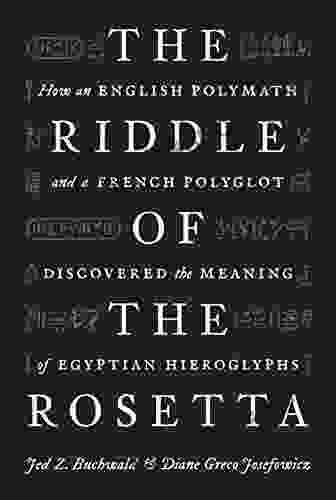
 Paulo Coelho
Paulo CoelhoHow an English Polymath and French Polyglot Discovered...
The Rosetta Stone is...
4.8 out of 5
| Language | : | English |
| File size | : | 17796 KB |
| Text-to-Speech | : | Enabled |
| Screen Reader | : | Supported |
| Enhanced typesetting | : | Enabled |
| Word Wise | : | Enabled |
| Print length | : | 506 pages |


